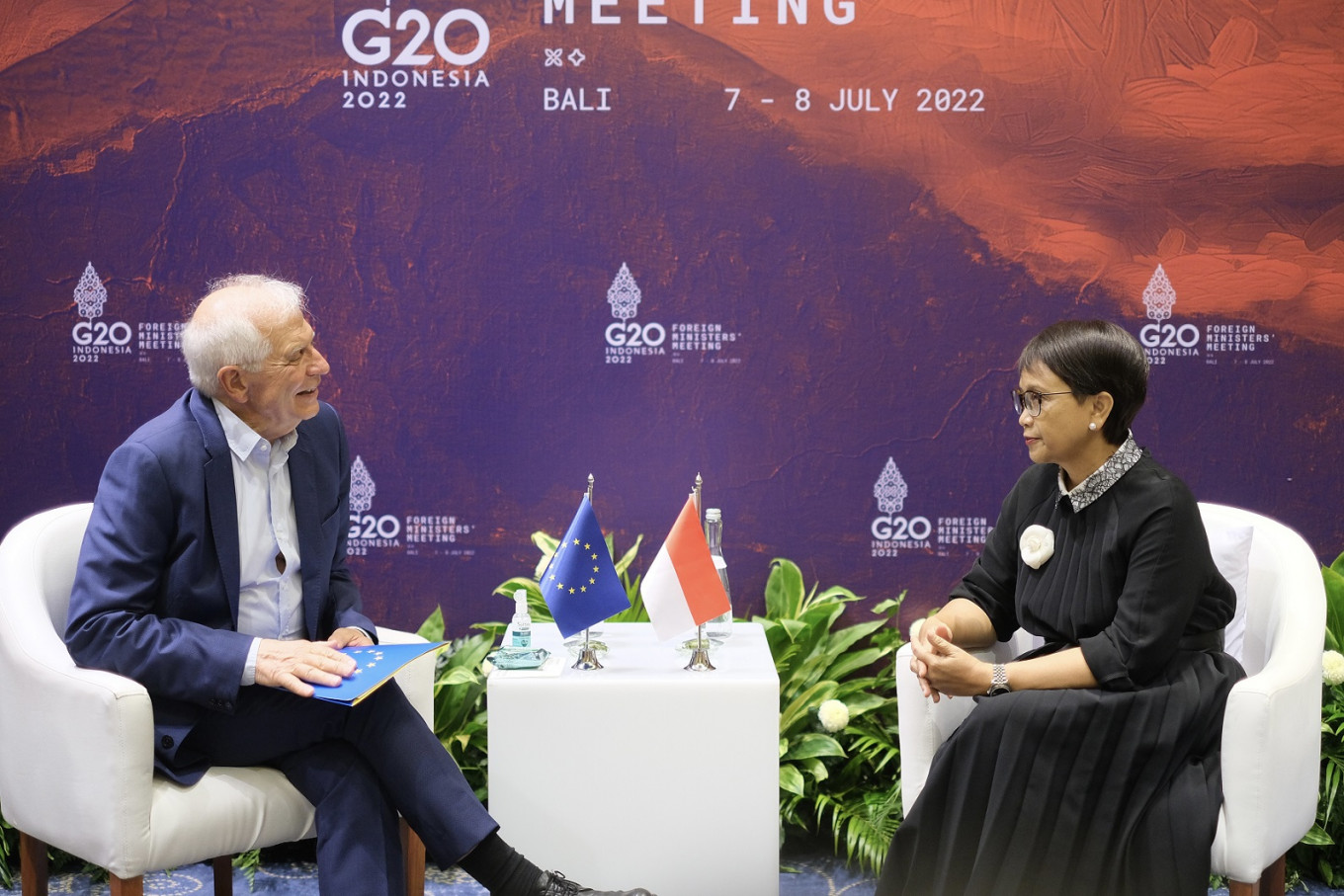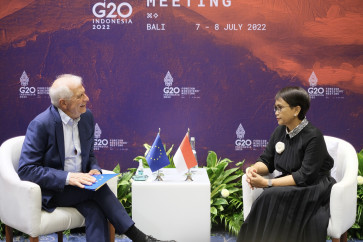Popular Reads
Top Results
Can't find what you're looking for?
View all search resultsPopular Reads
Top Results
Can't find what you're looking for?
View all search resultsWith untapped potential, EU is never too ‘far away’ for ASEAN
Europe is economically interdependent with many partners in Asia and we therefore have a direct stake in each other’s security.
Change text size
Gift Premium Articles
to Anyone
T
he European Union’s engagement in the Indo-Pacific has been slow to get off the ground on account of a number of bilateral and multilateral challenges, from the spat with Indonesia over commodities to differing opinions with the Global South on the need for industrialization. Ahead of his appearance at the ASEAN Regional Forum Foreign Ministers’ Meeting, the EU’s High Representative for Foreign Policy, Josep Borrell, spoke to The Jakarta Post’s Yvette Tanamal and A. Muh. Ibnu Aqil to address some burning questions on its approach to the region. The following are excerpts from the interview:
Question: There has been a number of disagreements between the EU and Indonesia about trade recently, including nickel exports and the Deforestation Regulation (EUDR) policy. How far is the EU willing to compromise to bridge these differences? What can we expect from the joint task force recently established?
Answer: To start with and most importantly: there is a huge untapped potential for trade and investment between the EU and Indonesia. Right now, Indonesia is only our fifth trade and outbound investment partner in ASEAN despite being a key country and a very large economy in Southeast Asia. This has to change.
The Comprehensive Economic Partnership Agreement we are currently negotiating can play an important role in achieving this and in boosting our bilateral trade and investment. This week, the 15th negotiation round is taking place and we work on making significant progress.
Regarding Indonesia’s export ban on nickel, the WTO panel has issued a ruling upholding the EU claims and I am sure that Indonesia will choose to engage constructively. As I always say: trade disputes, even between closest partners, are normal. What is important is that they are resolved.
The Joint Task Force on deforestation between Indonesia, Malaysia and the EU is a good example of such constructive cooperation. When it comes to the implementation of the EU’s Deforestation Regulation, it will provide an additional instrument facilitating our ongoing dialogue. As partners, we respect each other’s concerns and jointly discuss the best way forward. We want to enable producers, especially smallholders, to ensure that their supply chains are deforestation-free. And we will work together to ensure European consumption of the relevant commodities are not a deforestation driver in Indonesia or elsewhere. The EU is a very steady customer of Indonesian palm oil and timber, we have every interest in maintaining the trade.



















